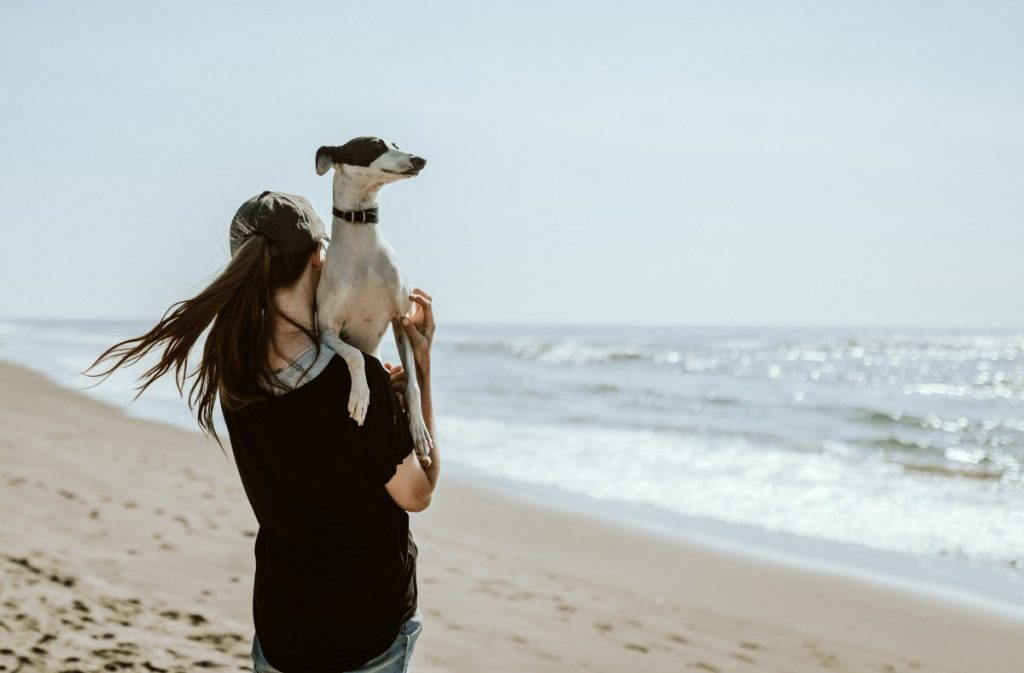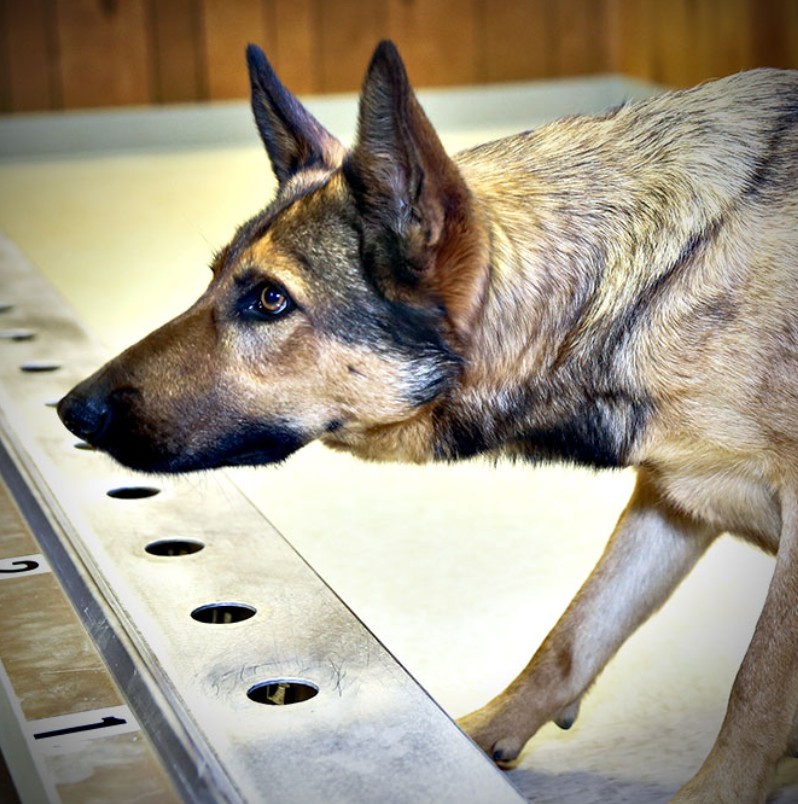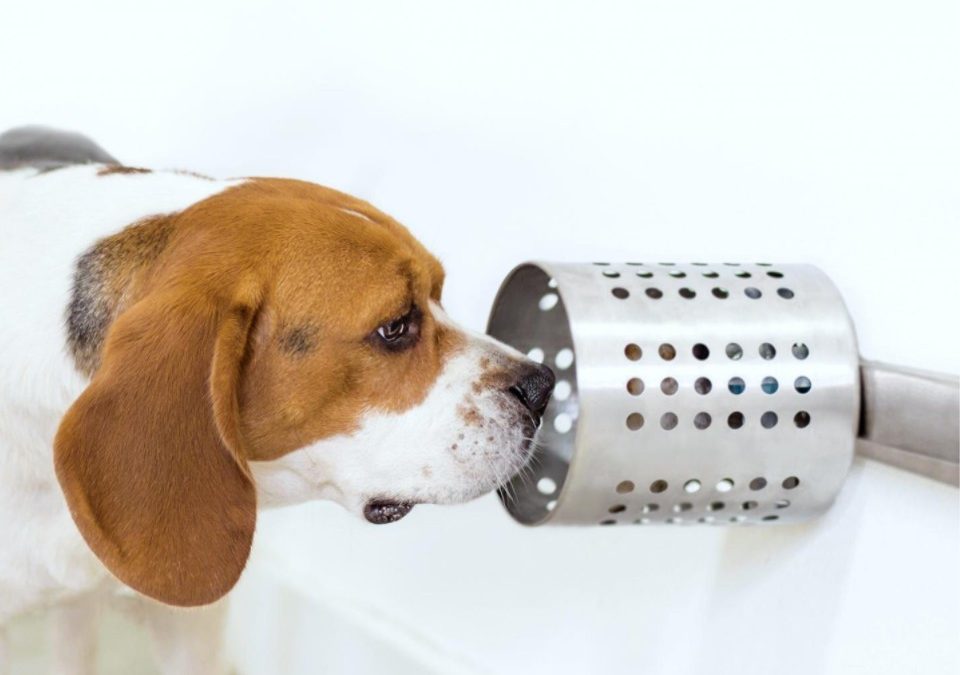Cancer Dogs: It seems that our fur babies are our new weapon. Doggos to the rescue!
A team of scientists has proven that dogs can truly sniff out cancer. And this canine cancer detection could lead to new non-invasive, and inexpensive ways to detect the disease. Good dog!
THE SCIENCE OF CANCER DOGS
Dogs that detect cancer may sound like science fiction. But the good news is that this could be the most exciting discovery in the cancer field for decades.
A dog’s nose is an exquisite piece of machinery, capable of smelling in parts per trillion. This makes dogs highly sensitive to odours we can’t even dream of smelling. If it was sight we were talking about, it would be like this: What you and I can see at half a kilometre, a dog could see at 5000 kms away, and see just as clearly. It’s impressive stuff.

EARLY DETECTION
Heather Junqueira is the lead researcher at BioScentDx. Her team are currently working to see if dogs really can spot cancer. For the study, Junqueira and her colleagues used a form of clicker training. They taught four beagles to distinguish between normal blood serum and samples from patients with malignant lung cancer. One beagle – named Snuggles, of course – couldn’t be convinced to stay on task, the hippie. But, the other three dogs correctly identified lung cancer samples 96.7 percent of the time. Aww cancer dogs, who’s a good boy!
“This work is very exciting because it paves the way for further research,” said Junqueira.
We should suck up to beagles, really really fast. Well, except Snuggles. All we can do with that guy is snuggle.
Junqueira isn’t the only scientist that’s getting results like this. Recent research has shown that dogs have detected lung cancer, melanoma, breast cancer and bladder cancer. While more study is needed, the initial results are incredibly exciting.
ANECDOTES
It isn’t just in the lab that dogs are showing their ability to pick up cancer. There are many incredible stories of dogs detecting cancer in their owners, including a story about a dog called Max from BBC’s Secret Life of Dogs.
Max is a Red Collie Cross normally full of energy and enthusiasm, but his owner Maureen Burns noticed that something was wrong. “I thought at the time Max was fading. He was nine and a half and I was preparing myself for losing him because he just wasn’t happy. He would come up and touch my breast with his nose and back off so desperately unhappy. There was such a sad look in his eyes.”
Maureen knew she had a small lump in her breast but her latest mammogram was clear. So she presumed all was okay. “But soon, I connected it with the dog and his odd behaviour.”
Maureen went to her local hospital but both a scan and a mammogram came back negative. It took a surgical biopsy to finally detect the cancer. Maureen had it removed and the change in Max’s behaviour was instant. “When I came home from the hospital, he was his old hyper self again. He put his nose across my breast to check where the operation had been. His eyes were happy and the change in him was instant. I owe Max so much. Now, before I go for a check-up, I get him to check me out. If he’s happy and wagging his tail, I am happy.”
Shannon
Likewise, actress Shannen Doherty has battled cancer more than once in her life. In an interview with Entertainment Tonight, she told an extraordinary story – that her dog identified her breast cancer before doctors could diagnose it. And interestingly, her story isn’t unusual. There are thousands of stories that are very similar to Shannen’s.
Cancer Dogs: MORE RESEARCH IS NEEDED
Many teams around the world are trying to work out how they can use dogs in cancer diagnosis. Dr Gianluigi Taverna is a researcher with Humanitas Research Hospital in Milan. He showed that his dogs could detect prostate cancer with an amazing 98% accuracy. Taverna and his team spent five months training two German Shepherds to detect cancer in humans by sniffing patients’ urine samples. The dogs checked over 900 people in the study. Out of these 900, the dogs were only wrong 20 times.
Said Dr. Taverna, “We have demonstrated that the use of dogs might represent a real clinical opportunity if used together with common diagnostic tools. Our standardised method is reproducible, low cost and non-invasive for the patients. This might reduce unnecessary prostate biopsies and pinpoint patients at high risk for prostate cancer.”
CANCER DOGS – MAN’S BEST FRIEND
Dogs are already used to detect impending seizure activity, and also to help mitigate meltdowns in people suffering from autism. The ability to detect cancer too means that dogs are not only amazing companions and our best friend – but could also save our lives.
Of course, there is a stack of research still to be done. But the future in this area is very bright. There are organisations which are springing up whose sole aim is to train cancer-sniffing dogs. One of these is the InSitu Foundation (dogsdetectcancer.org). They rescue dogs on death row and give them a new life, where they are loved and cared for.
Cancer-detecting dogs could be an amazing weapon against one of the biggest health scourges of our time. We knew we loved dogs for a reason, now there is a whole new reason to love them! Come sleep on our beds forever, doggos!
LINUS THE CANCER DOG

This special guy, called Linus, is a 3-year-old male German Shepherd who was on death row. He was returned to a shelter three times by his previous owner. The InSitu Foundation adopted him. When he came to InSitu’s ranch, he got his first job, and it literally transformed Linus’s life. Linus went from a small jail cell to a life of love and play. Says InSitu, “He’s happy, balanced, and well adjusted, and he’s the most loving boy around! Linus loves his work, and he’s a gem on the cancer detection team.”
Linus also works on the Duke University team of breast cancer detection dogs. Read about more cancer-sniffing dogs at dogsdetectcancer.org/our-dogs
Like reading about our furry friends? Then check this doggo story out!

Editor for Silver Magazine Gold Coast

